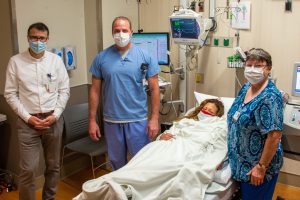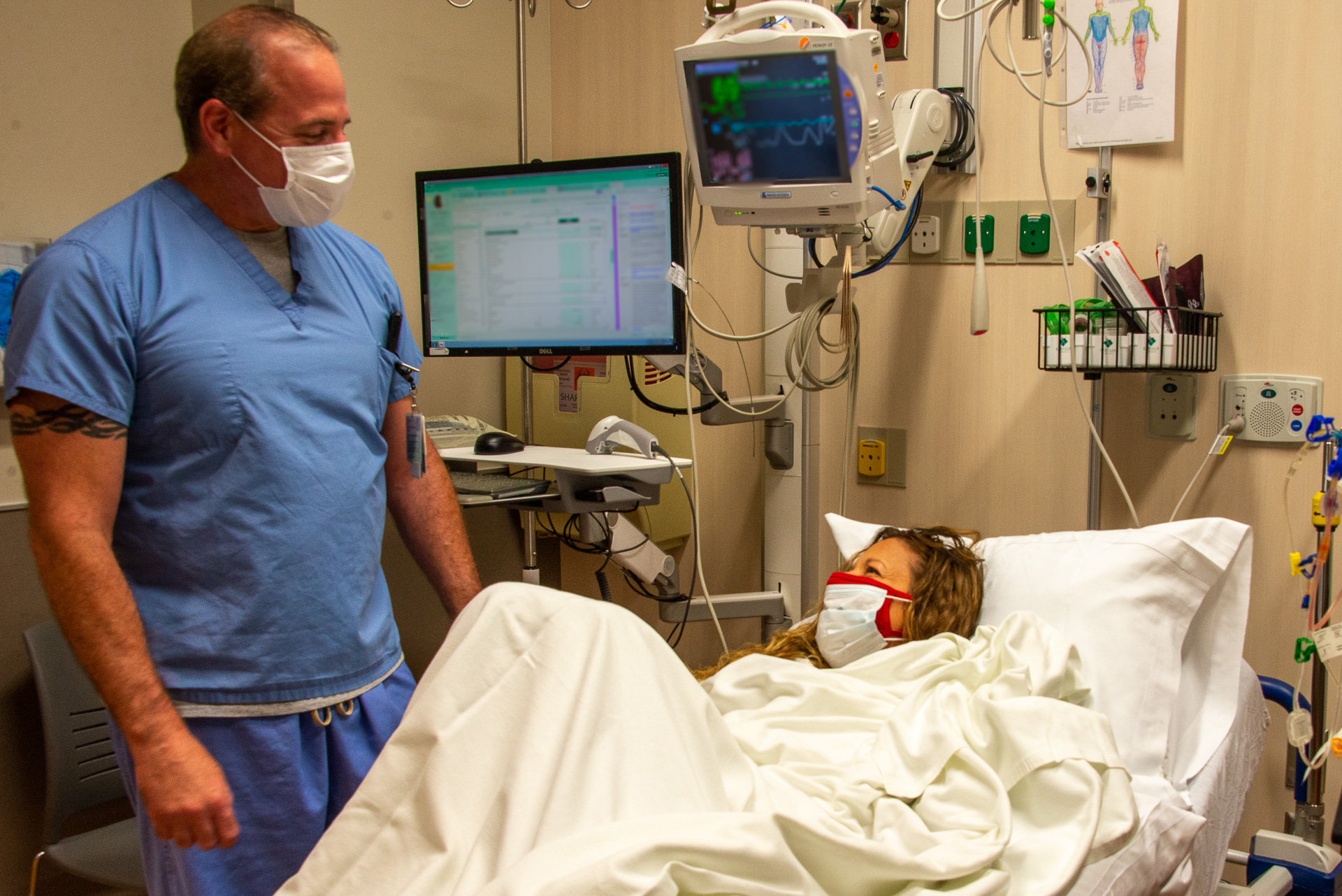UConn Health is now home to an Outpatient Therapeutic Plasma Exchange (TPE) Clinic. This new service will allow patients in need to have same-day outpatient plasmapheresis treatment thus avoiding a lengthy inpatient hospital stay.
“This was a true group effort to bring this outpatient service solution to UConn Health,” says Dr. Ibrahim Elali, assistant professor of medicine in the Division of Nephrology at UConn Health. “As one of only a few outpatient TPE clinics in the state, this is a great service, not only for our UConn patients but for the surrounding community in need.”

The new Outpatient TPE Clinic at UConn John Dempsey Hospital has three dedicated plasmapheresis machines. Each same-day TPE outpatient session takes about 2-3 hours.
According to Elali, the majority of patients at UConn in need of plasmapheresis are those who are experiencing chronic neurological disorders without a known disease cure. TPE helps serve as a maintenance therapy to keep their disease and symptoms under control. UConn Health cares for several patients with chronic neuromuscular diseases such as myasthenia gravis and multiple sclerosis for which a repetitive series of treatments are performed. The new outpatient plasmapheresis service will allow these patients to get their treatments without prolonged hospital stays.
Plasma exchange is provided via a plasmapheresis machine connected to a patient’s central venous catheter, or in certain cases, to a surgically created arteriovenous fistula or a vascular graft, as is commonly done for patients receiving outpatient chronic hemodialysis for kidney failure. A patient’s blood plasma, the liquid portion of a patient’s blood (which contains proteins, electrolytes, vitamins, hormones, etc.) is mechanically separated to remove any disease-causing factors such as “auto-antibodies” which attack the patient’s own tissues. The plasma that is removed from the patient is then replaced with another healthy protein solution.
For decades UConn Health has been offering TPE and performs around 100 TPE procedures a year. Prior to the new outpatient care service, TPE patients remained in the hospital for 8 to 10 days to receive their routine maintenance plasmapheresis therapy that is usually done every other day for 3 to 7 treatments.
“Certain neurological diseases may require maintenance therapy up to three treatments a month which can be quite burdensome on patients if they need to remain in the hospital,” says Elali. “Now, thanks to UConn Health’s Outpatient TPE Clinic, patients can have the therapy and then go home within 2 to 3 hours.”
While it depends on a patient’s individual disease, according to Elali, TPE can help patients have less symptoms, improve quality of life and help better manage their chronic disease.
There are numerous diseases that may benefit from TPE treatments. Other conditions that are commonly treated with plasma exchange include diseases that affect the nervous system like Guillain-Barré Syndrome and chronic inflammatory demyelinating polyneuropathy (CIDP). It is also used to treat some diseases in which the blood is “too thick” such as a blood disorder called thrombotic thrombocytopenic purpura (TTP) where small blood clots can cause severe damage to organs. Some patients with severely elevated cholesterol levels can also benefit from chronic, maintenance plasma exchange treatments.
“I am very excited that we have succeeded in our efforts to offer outpatient therapeutic plasmapheresis to our patients, thanks to Dr. Elali’s perseverance,” shared UConn Health’s Chief Nursing Officer Caryl Ryan MS, BSN, RN.
Outpatient TPE Clinic patients arrive to the UConn Health Procedure Center entrance and receive his or her outpatient treatment sessions inside the hospital’s Post-Anesthesia Care Unit (PACU).
If you are a physician wishing to refer a patient in potential need of TPE therapy, please call 860-679-4888.



